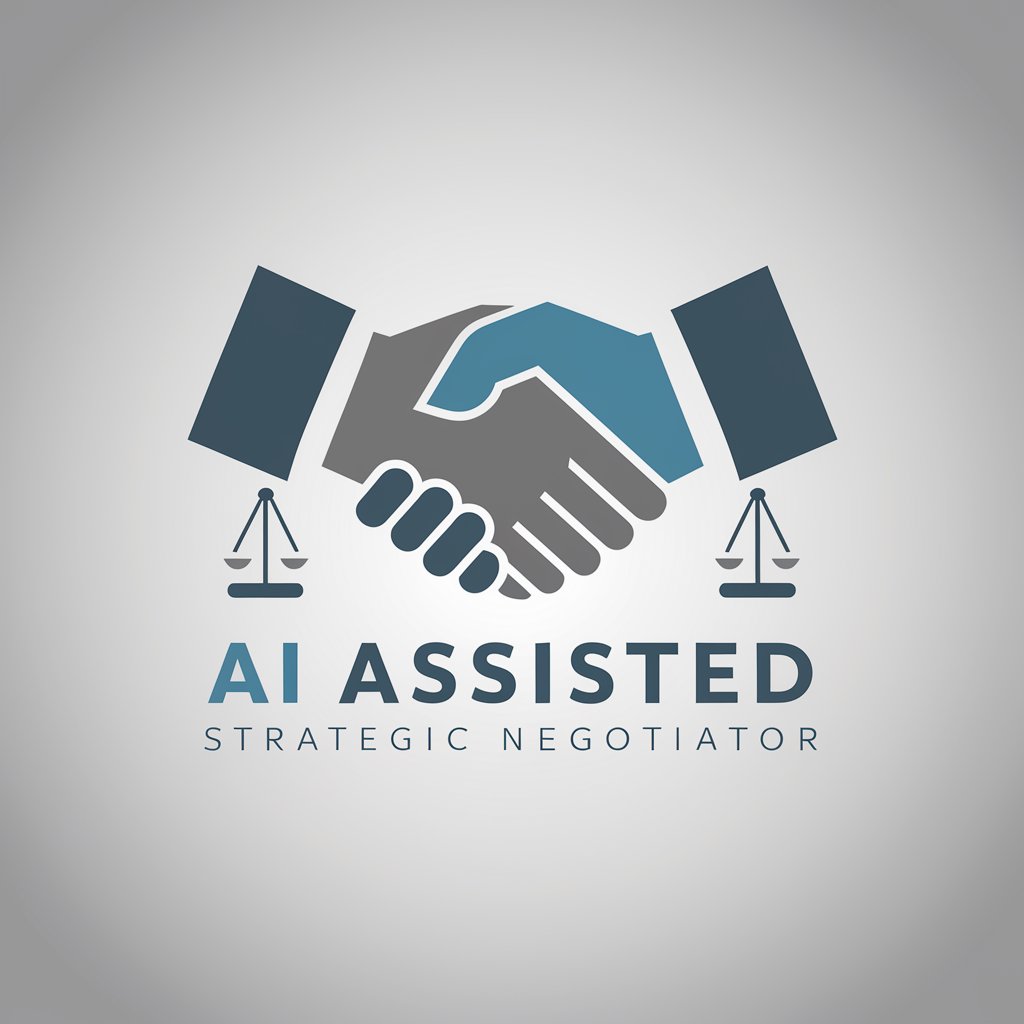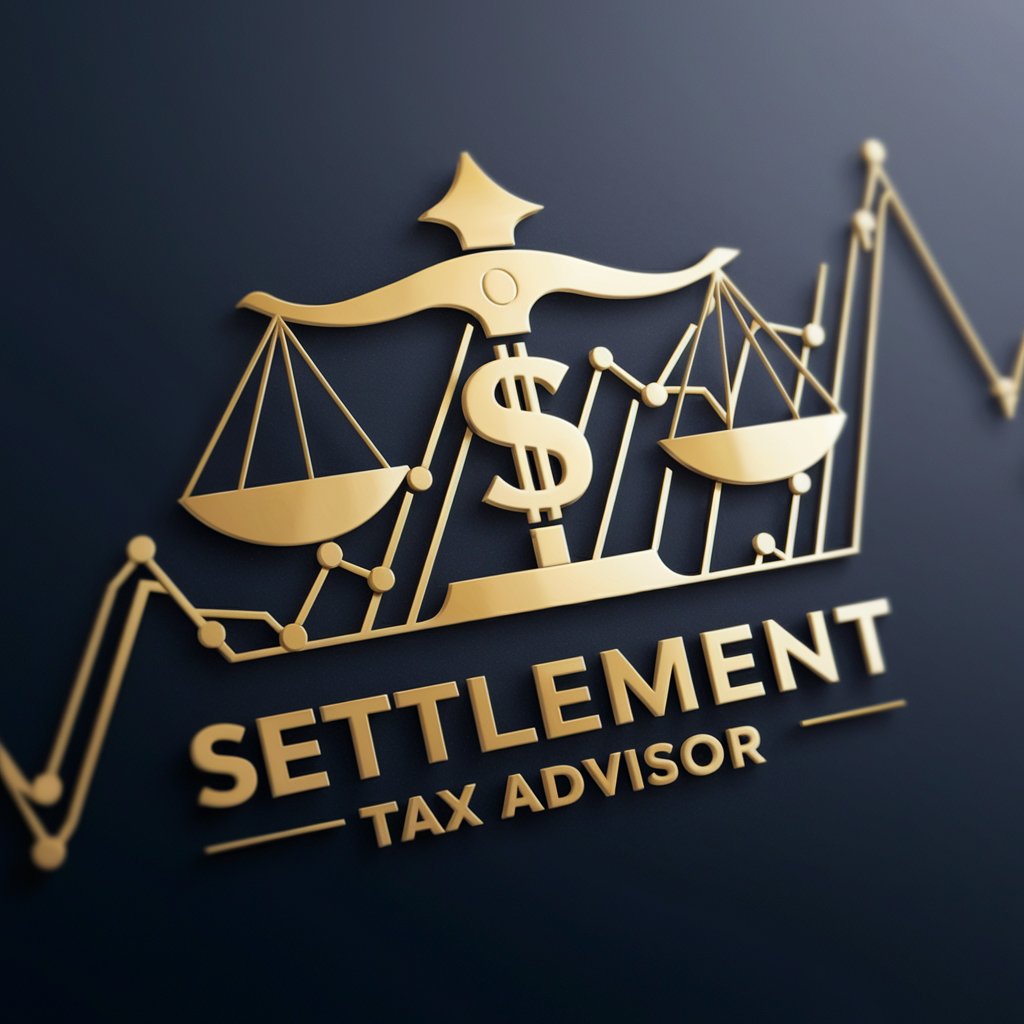2 GPTs for Legal Settlements Powered by AI for Free of 2026
AI GPTs for Legal Settlements are advanced generative pre-trained transformers tailored for the legal sector, specifically in the area of settlements. These AI tools leverage deep learning algorithms to understand, generate, and process legal documents, negotiations, and settlement agreements. They are designed to assist legal professionals in drafting documents, researching case law, predicting litigation outcomes, and facilitating the settlement process, making them highly relevant and valuable in legal practices. By incorporating natural language processing (NLP) capabilities, these GPTs offer precise, efficient solutions for handling complex legal tasks, thereby revolutionizing the approach to legal settlements.
Top 2 GPTs for Legal Settlements are: AI Assisted Strategic Negotiator,Settlement Tax Advisor
Key Attributes and Functions
AI GPTs for Legal Settlements stand out due to their adaptability across a range of legal tasks, from drafting settlement agreements to analyzing legal precedents. Key features include advanced language comprehension, enabling the processing of legal jargon and documents; customization capabilities for specific legal contexts; technical support for integrating with legal databases; web searching for the latest case laws; image creation for visual evidence analysis; and data analysis features for predicting case outcomes. These tools are designed to be highly adaptable, scaling from simple document drafting to complex legal analysis and predictions.
Who Benefits from Legal AI Tools
AI GPTs for Legal Settlements are invaluable to a broad audience, including legal professionals (lawyers, paralegals), law firms, legal departments in corporations, and legal tech developers. They offer user-friendly interfaces for novices without coding skills, while also providing powerful customization options for tech-savvy users and developers. This accessibility enhances productivity, decision-making, and strategic planning in legal practices, making these tools essential for anyone involved in the legal settlement process.
Try Our other AI GPTs tools for Free
Diplomatic Talks
Revolutionize diplomacy with AI GPTs: advanced tools designed for international relations, offering language versatility, adaptive learning, and strategic insights.
Sales Deals
Unlock the power of AI in sales with GPTs designed to enhance efficiency, personalize interactions, and drive success in your sales strategies.
Application Guide
Discover how AI GPTs revolutionize application development, offering tailored support, automation, and insights to streamline your projects.
Scholarship Info
Discover how AI GPTs for Scholarship Info transform scholarship discovery and application with personalized guidance and advanced AI technology.
Thumbnail Analysis
Discover the transformative power of AI GPTs for Thumbnail Analysis, designed to optimize your thumbnails for better engagement and performance.
Multiversal Research
Explore the endless possibilities of multiverse theories with our AI GPT tools designed for Multiversal Research. Tailored insights, simulations, and collaborative tools for enthusiasts and professionals alike.
Further Observations on Legal AI Solutions
AI GPTs for Legal Settlements represent a significant advancement in legal technology, offering solutions that enhance the efficiency and accuracy of legal processes. Their user-friendly interfaces and integration capabilities make them highly accessible to professionals across the legal sector, promising a future where legal practices are more informed, efficient, and adaptable.
Frequently Asked Questions
What are AI GPTs for Legal Settlements?
AI GPTs for Legal Settlements are specialized AI tools designed to assist in the legal settlement process, utilizing natural language processing to draft documents, analyze case law, and predict outcomes.
How do these AI tools assist legal professionals?
They streamline the legal process by automating document drafting, facilitating research, analyzing legal precedents, and offering predictive insights into case outcomes, thus saving time and resources.
Can non-technical users operate these AI GPTs effectively?
Yes, these tools are designed with user-friendly interfaces that allow non-technical users to leverage AI capabilities without needing coding skills.
Are there customization options for specific legal needs?
Absolutely, these AI tools offer extensive customization options to tailor their functions to specific legal contexts and requirements.
How do AI GPTs adapt to the constantly changing legal landscape?
They are continually updated with the latest legal databases and case laws, enabling them to adapt to new legal precedents and regulations.
Can these tools integrate with existing legal databases and software?
Yes, they are designed to integrate seamlessly with existing legal databases and case management software, enhancing their utility in legal practices.
What makes AI GPTs for Legal Settlements unique compared to other AI tools?
Their ability to understand and process complex legal language, coupled with their adaptability and customization for legal contexts, sets them apart from generic AI tools.
What future developments can be expected in AI GPTs for Legal Settlements?
Future developments include enhanced predictive analytics, improved natural language understanding for legal documents, and deeper integration with legal tech ecosystems.

